News
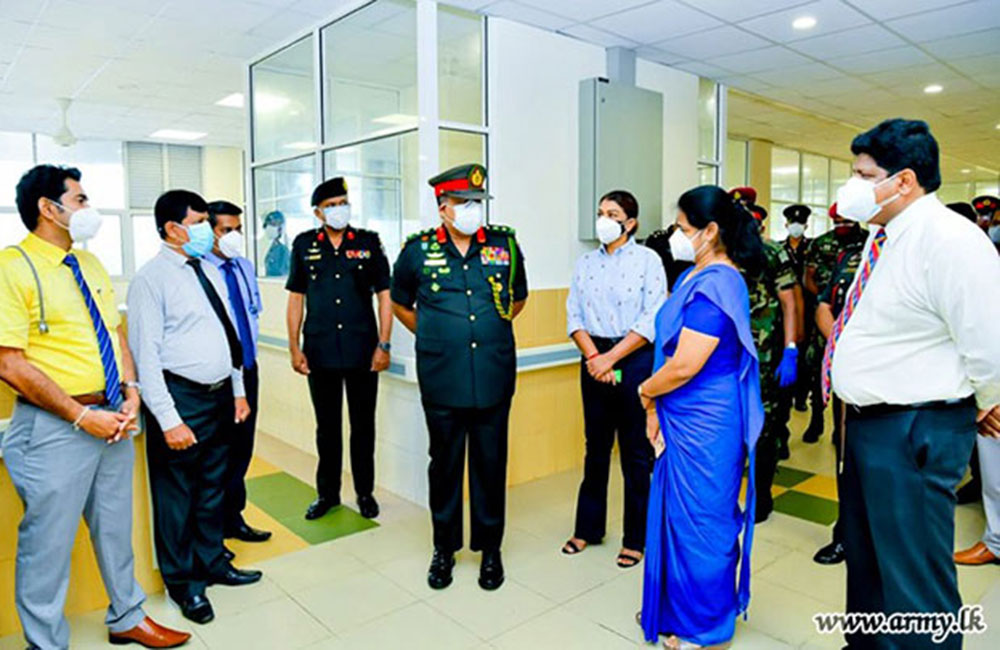
New Wards established by Army at Colombo South Teaching Hospital
The untiring efforts of Army troops in order to expand the existing ward capacity at Colombo South Teaching Hospital, in close consultation with health authorities, completed the establishment of three more new wards in the eight-storied building in the hospital complex.
The project, considered as another giant emergency move, undertaken by the Army as per Presidential directives was fully supported by the Army Seva Vanitha Unit (ASVU) and all three converted wards with 250 beds were formally vested in the Colombo South Teaching Hospital authorities this morning (26) by General Shavendra Silva, Head, National Operation Centre for Prevention of COVID-19 Outbreak (NOCPCO), Chief of Defence Staff and Commander of the Army, together with Mrs Sujeewa Nelson, President, Army Seva Vanitha Unit who was instrumental in providing the project with all accessories and furniture.
The Sri Lanka Army Ordnance Corps (SLAOC) factory in Dombagoda within a day in a striking dedication manufactured the first set of 150 iron beds to match with recommended ward specifications on the directions of the Army Chief, no sooner than the Presidential directive wanted the building floors be used for this emergency purpose as early as possible. The remaining 100 beds are to be supplied within next 48 hours according to Brigadier Priyantha Weerasinghe, Director, Directorate of Ordnance Services.
The ASVU taking note of the essentials provided 250 mattresses, 300 bedsheets, 300 pillow cases, 300 pillows, bedside cupboards and other pieces of furniture as well as accessories to those three wards, in which an emergency treatment section and a reserved section with a set of beds for affected little children are also available. The continuing increase of COVID-19 patients prompted the Army to assist further expansion of treatment capacity in this hospital by establishing three new wards on priority basis.
The challenge for conversion of those three wards inside an incomplete storeyed hospital building at the earliest was promptly and committedly undertaken by troops of the Security Force HQ-West, 14 Division HQ and other logistics battalions, just a few days ago under the close guidance and the 24hr supervision of Major General Sujeewa Senerath Yapa, Commander Security Forces-West, Major General Crishantha Gnanarathna,General Officer Commanding, 14 Division,Brigadier Thushara Balasooriya – Brigadier Cordination ASVU, Brigade Commanders under the SFHQ-West and the 14 Division, comprised of all Commanding Officers, Sri Lanka Engineers and all other logistics battalions.
Since of recent times, the Army as per directions of the Head, NOCPCO has been engaged in converting hospital wards, abandoned factory buildings, allocated industry buildings, unused state locations, etc to serve as emergency treatment wards or ICCs in the face of looming threat of the virus transmission and the surge of more and more positive cases.

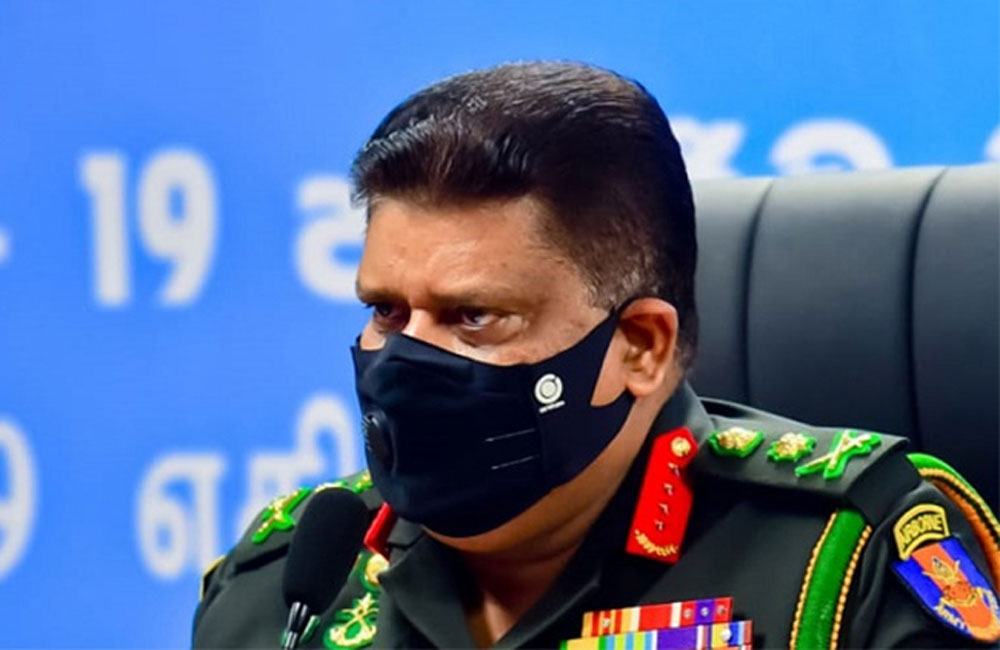
Quarantine Curfew in effect from 10 PM on Friday (20)
The Quarantine Curfew will come into effect from 10 PM on Friday (20) to 04 AM on Monday (30), said Army Commander General Shavendra Silva.
During this period all essential services, medical supply & distribution, agriculture, and textiles sectors can operate without any issue.
Further, all individuals over the age of 60 will be subject to a special vaccination program by the health authorities.

Issuance of Smart Card for vaccination commenced
The issuance of smart cards to people who have been fully vaccinated has already commenced. In the first round, this card is issued to people who are preparing to go abroad.
This card is issued by the National Institute of Information Technology and the opportunity to register for the card has been provided online.
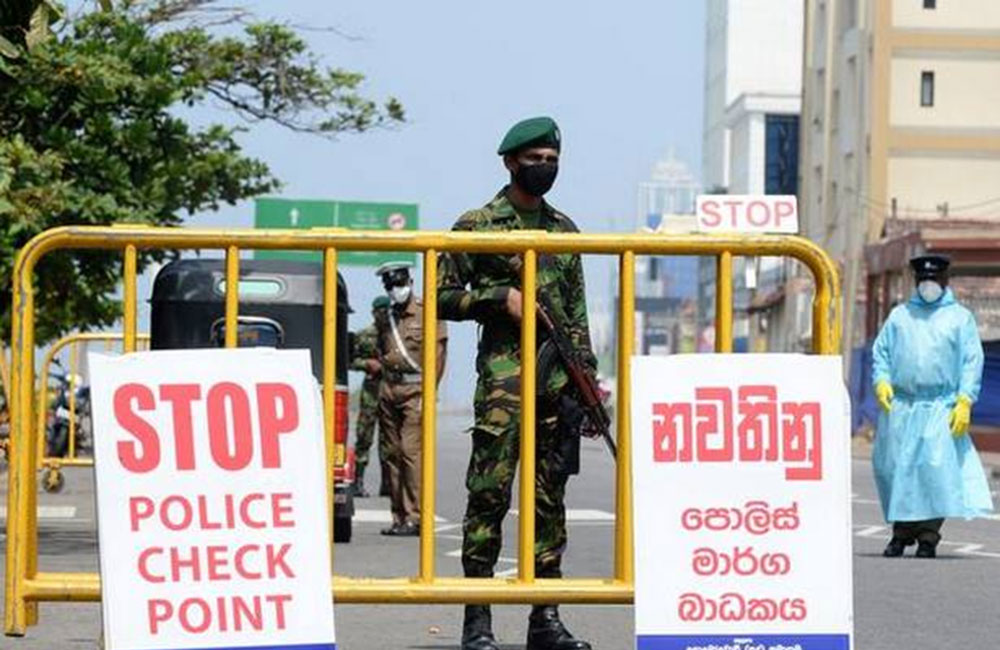
Island-wide quarantine curfew imposed at night from tomorrow
Island-wide quarantine curfew will come into effect between 10.00 pm and 4.00 am from tomorrow (August 16), the Head of National Operation Centre for Prevention of COVID-19 Outbreak (NOCPCO), General Shavendra Silva announced.
The quarantine curfew order will be in effect every day until further notice, the Army Commander said further.
Accordingly, movement of the members of public is strictly restricted during this period, except for employees in essential services.

198 COVID-19 deaths confirmed for Tuesday (24); 7,948 total COVID fatalities
198 COVID-19 deaths were confirmed for Tuesday (24), said the Director General of Health Services. According, the total number of COVID-19 fatalities in Sri Lanka increased to 7,948.
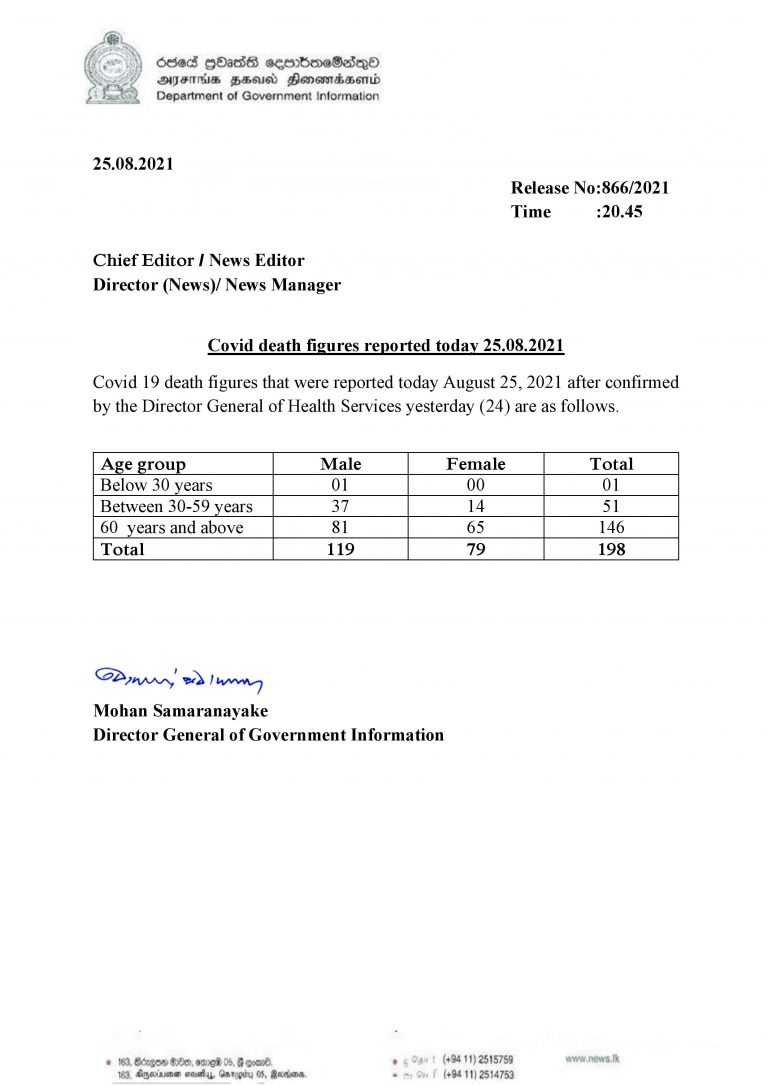
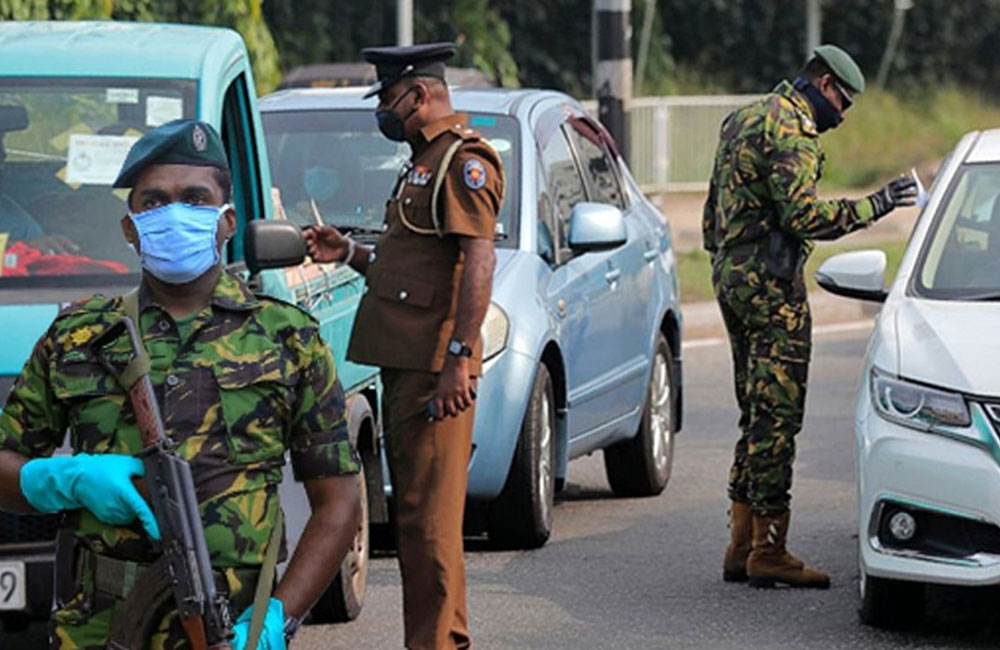
Inter-provincial travel ban strictly enforced; inter-province public transport cancelled
The prevailing inter-provincial travel restrictions will be thoroughly implemented from midnight today, Army Commander General Shavendra Silva said.
He said the inter-province public transport would also be suspended from midnight today.
“However, the inter-provincial travel restrictions will not be applicable for banking, tourism, ports, apparel sectors and essential services,” the Army Commander said.
The decisions were taken during the COVID Task Force meeting held this morning at the Presidential Secretariat.
He also said it was utmost essential to operate restaurants and shopping malls under strict adherence to health guidelines.
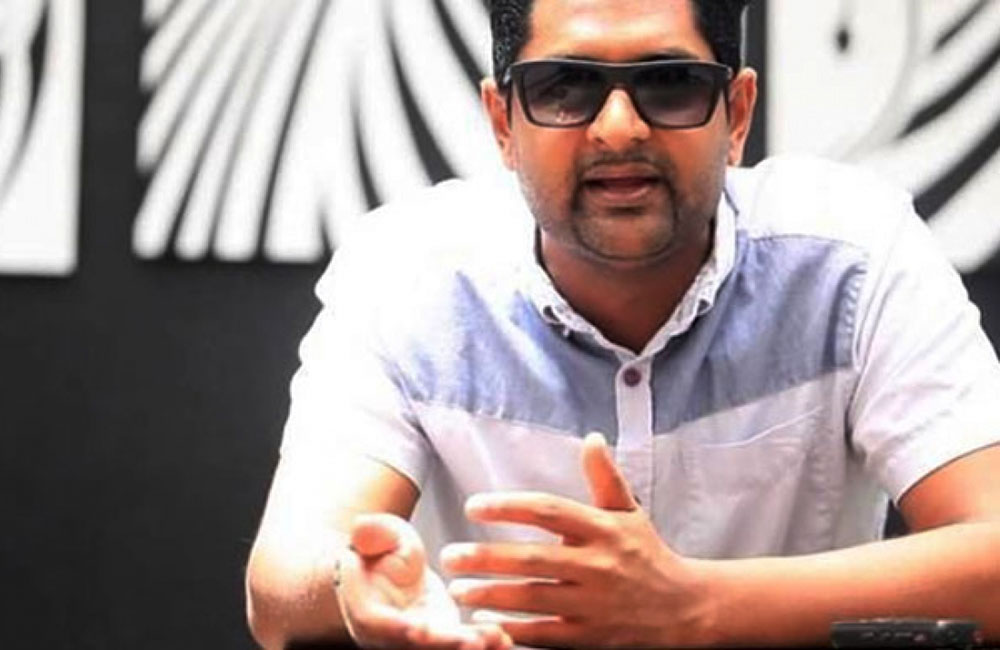
Iraj resigns as NYSC director
Musician Iraj Weeraratne, who was appointed as director of the National Youth Services Council (NYSC), has resigned from the post.
Weeraratne has sent a letter to the Sports and Youth Affairs Minister Namal Rajapaksa today informing his decision to resign from the post.
He said the decision was taken as he had to attend to some urgent personal work.
Minister Namal Rajapaksa had appointed Iraj Weeraratne as a director of the NYSC in August last year.
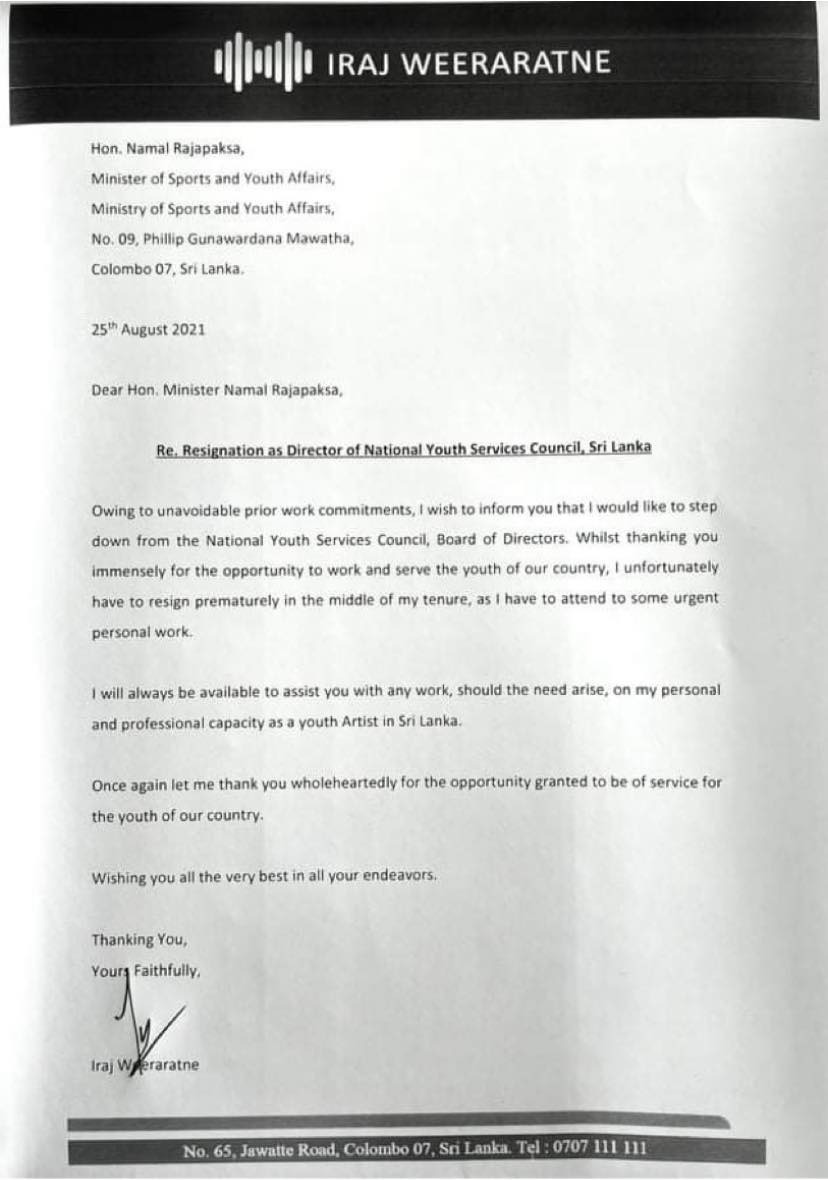
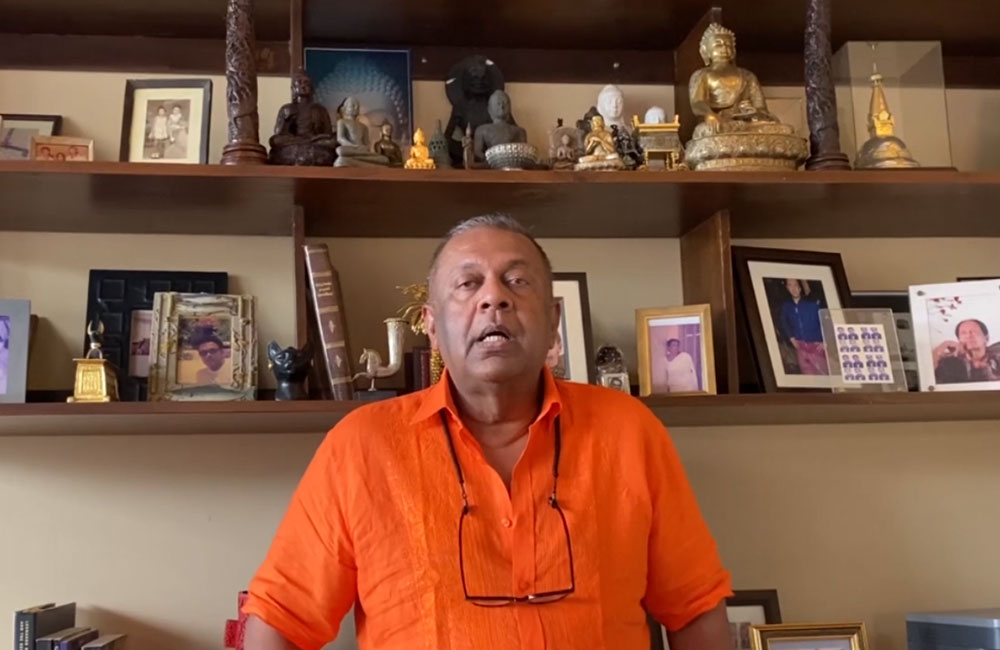
Mangala Samaraweera tests positive for Covid-19
Former Minister Mangala Samaraweera has tested positive for the coronavirus.
The former Finance Minister is currently under treatment while his condition is said to be stable.

Health Minister declares MRP for 60 medicinal drugs
The maximum retail price for 60 medicinal drugs has been declared by the Minister of Health.
The Minister of Health, Keheliya Rambukwella declared this via the issuance of a special gazette notification.
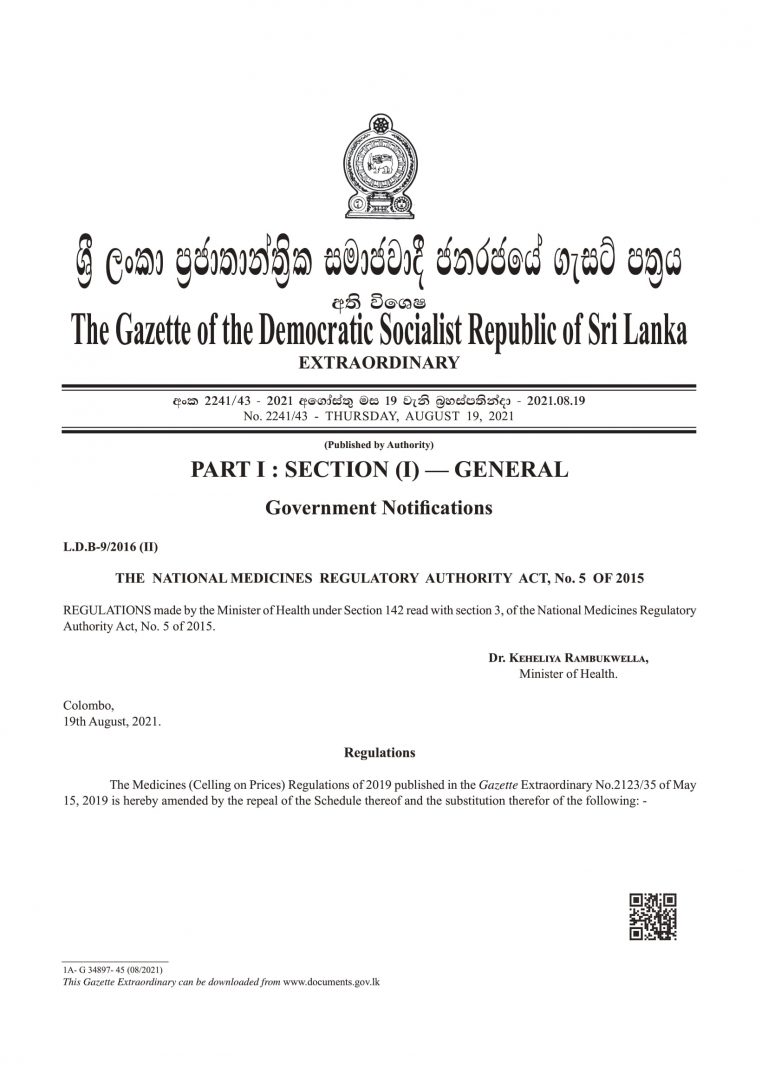
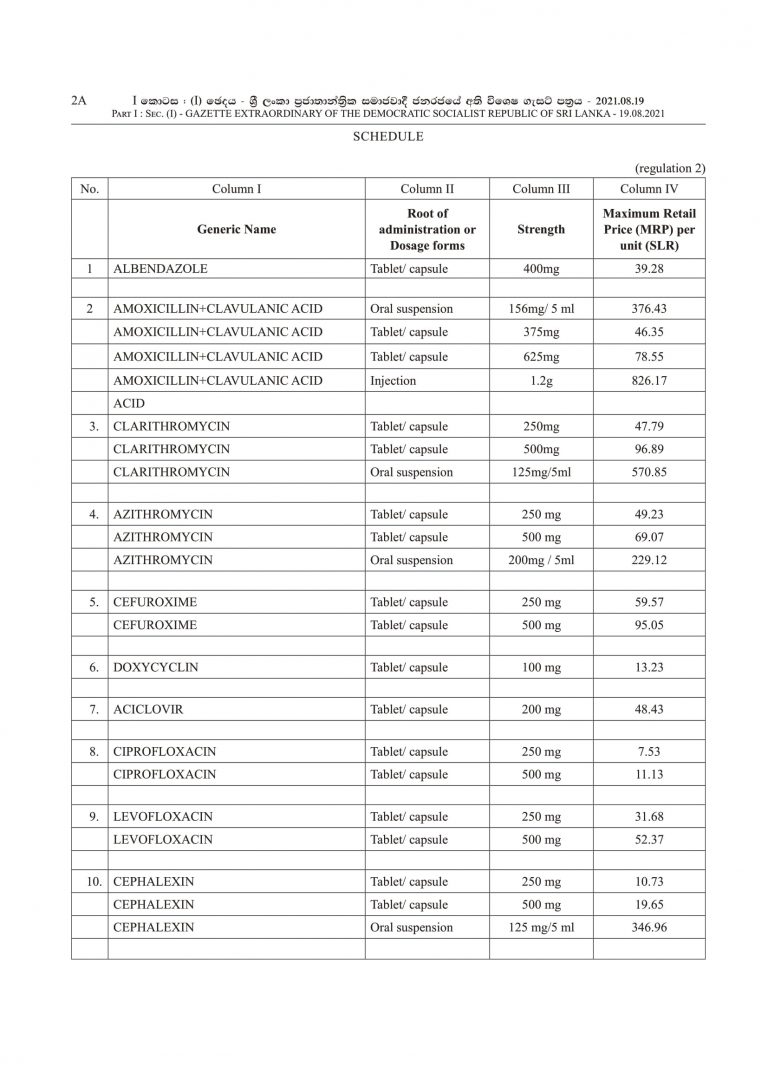
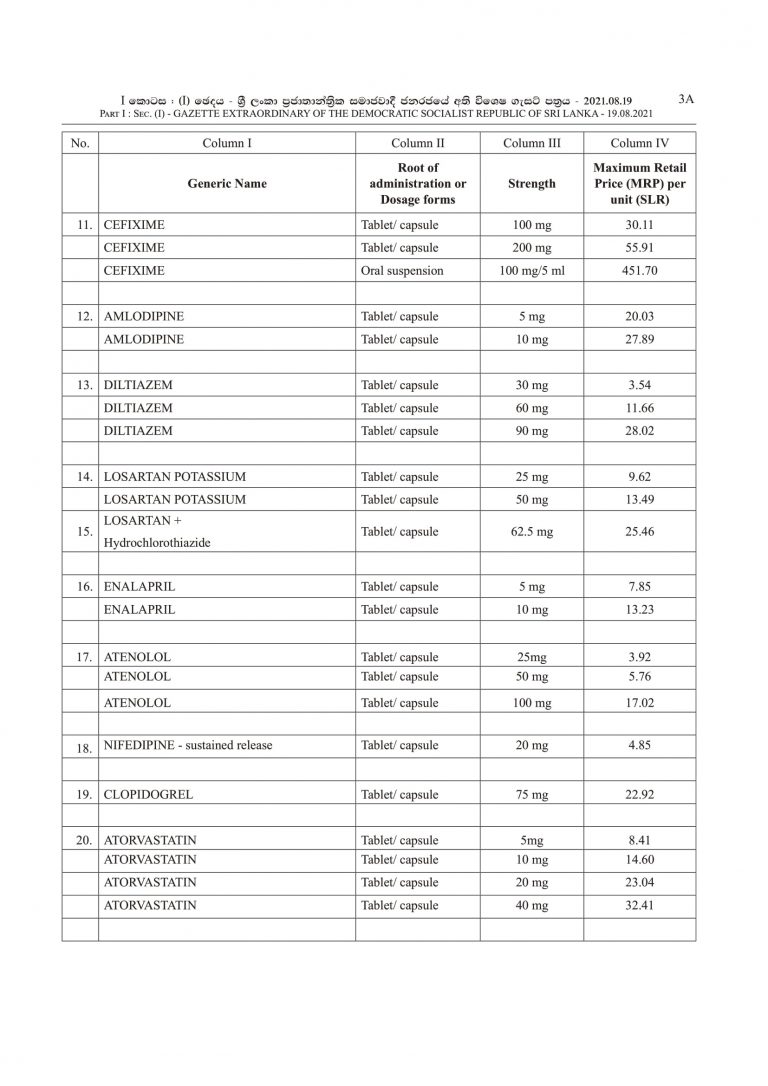
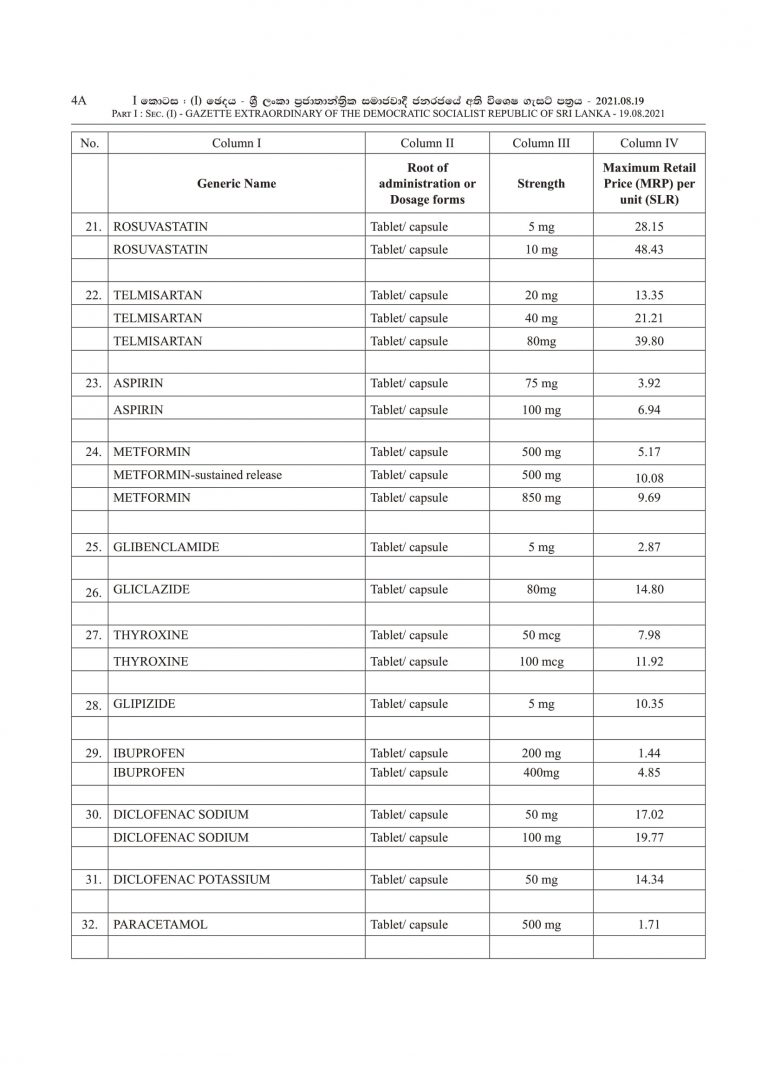
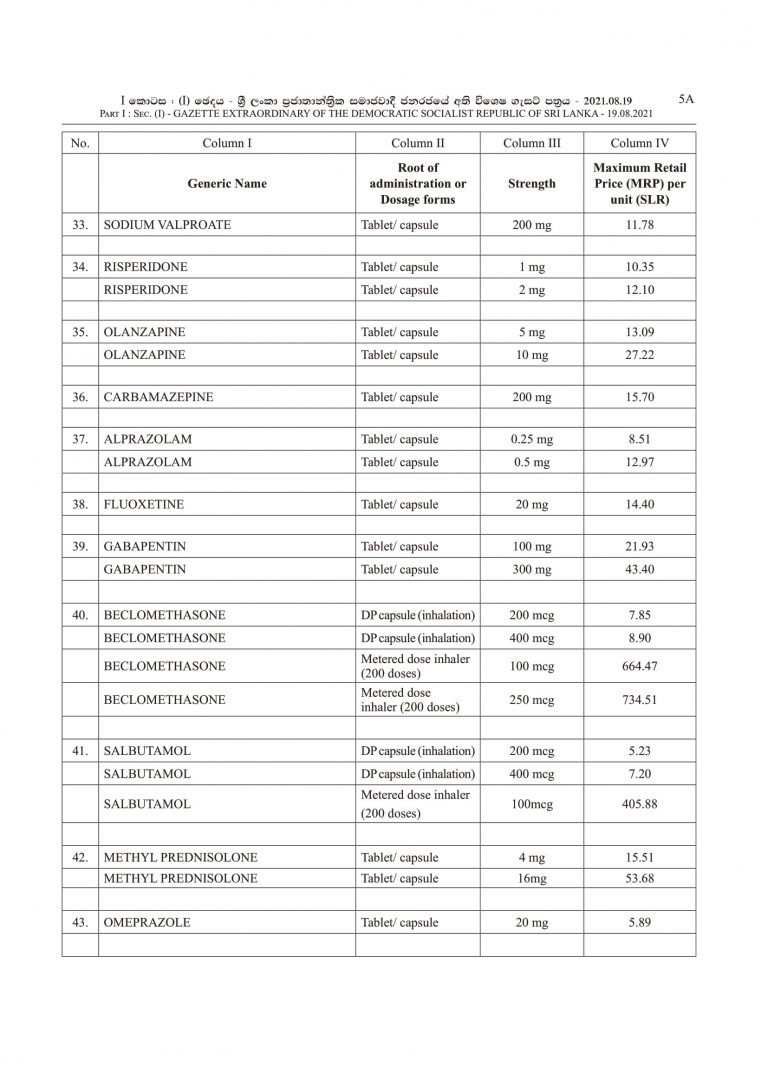
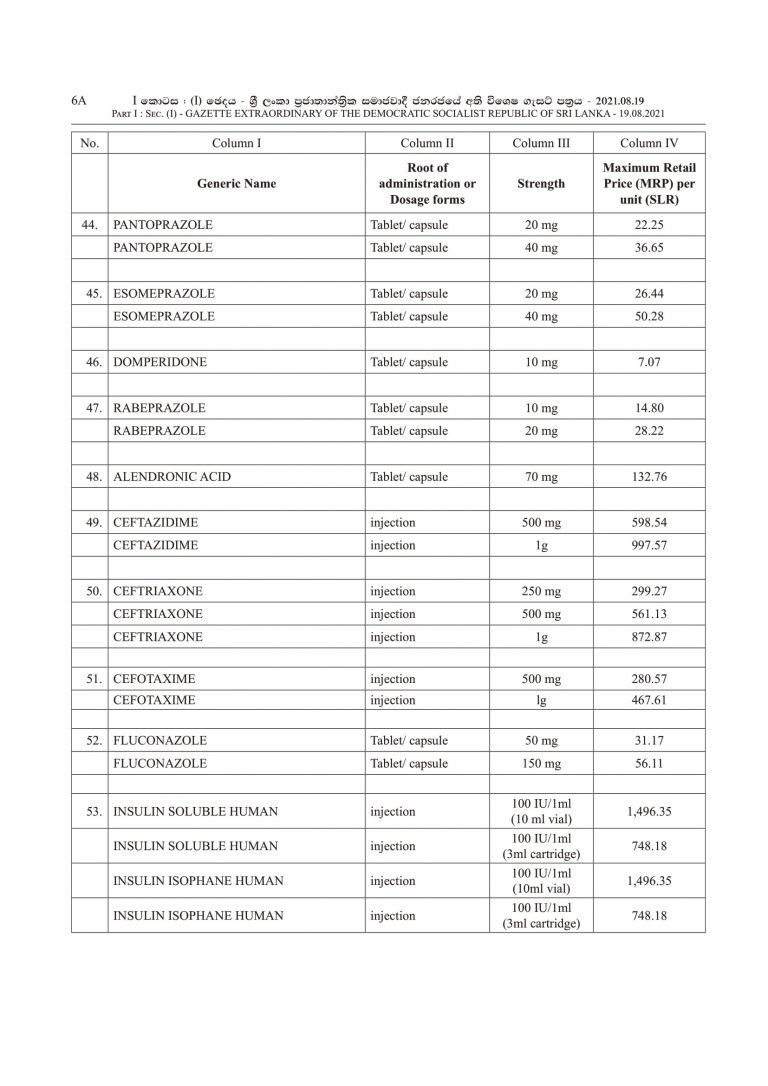
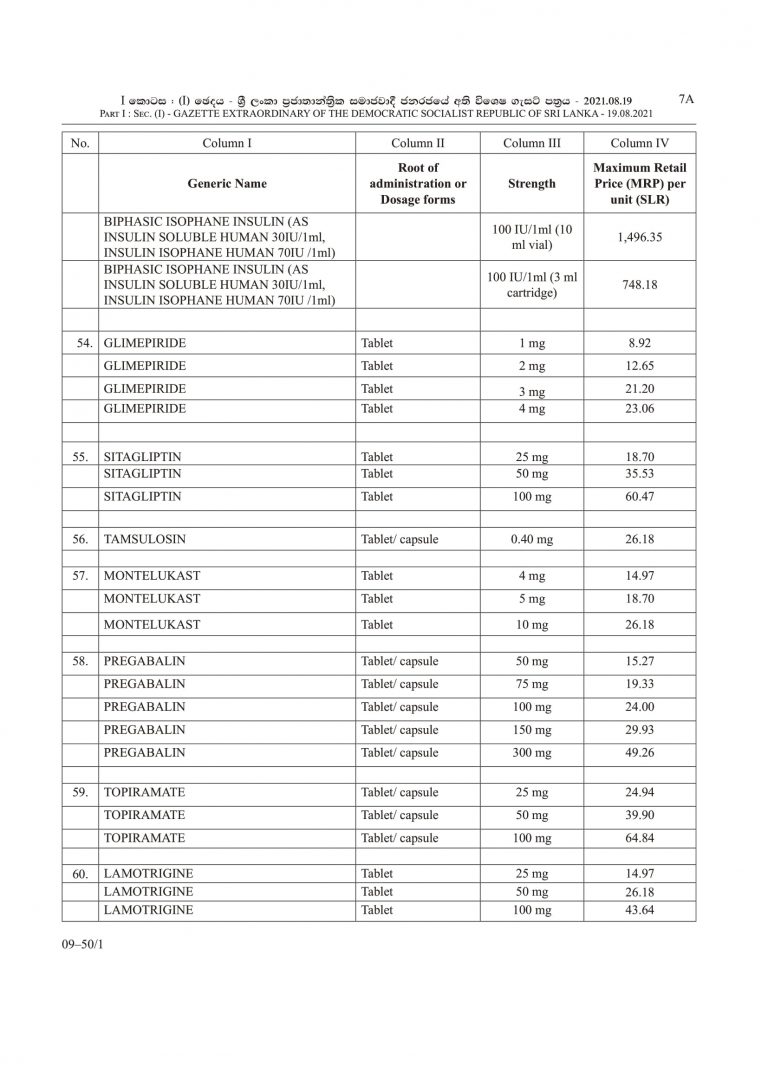
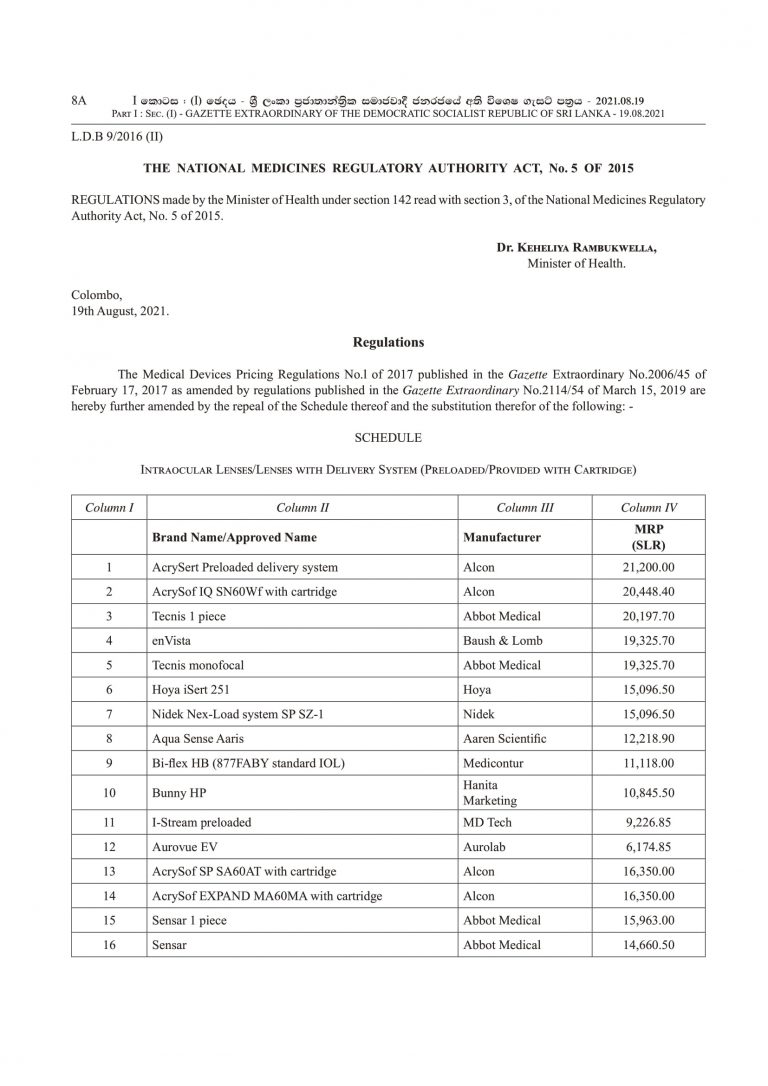
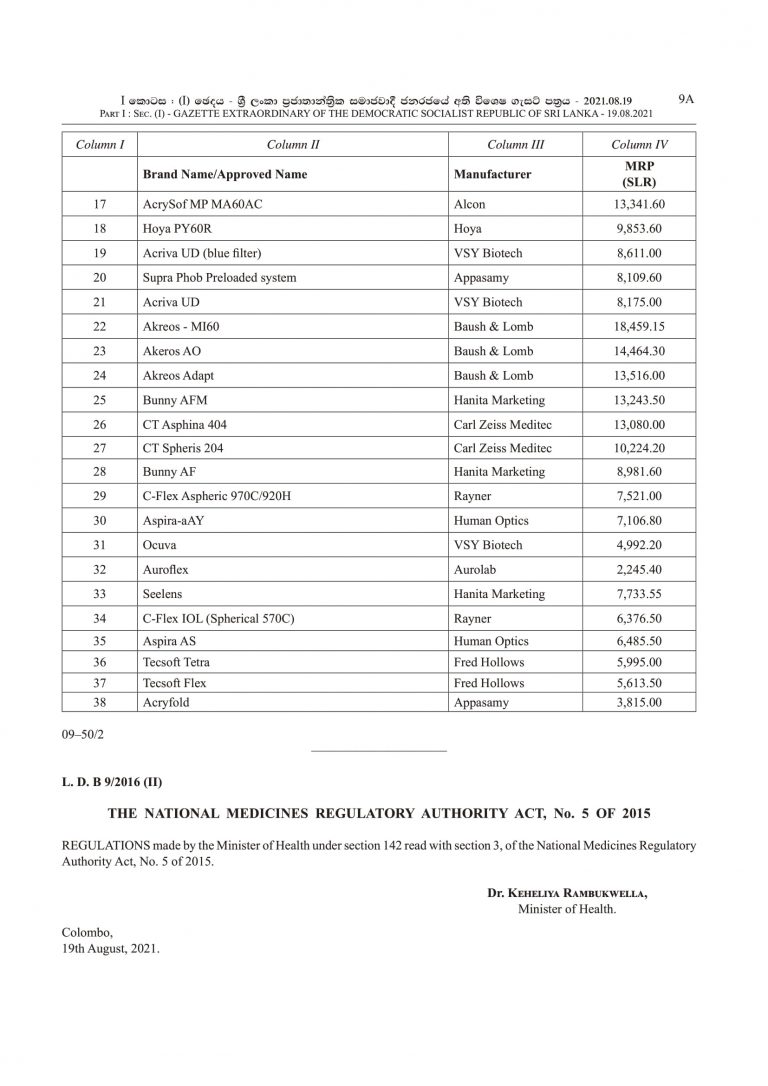
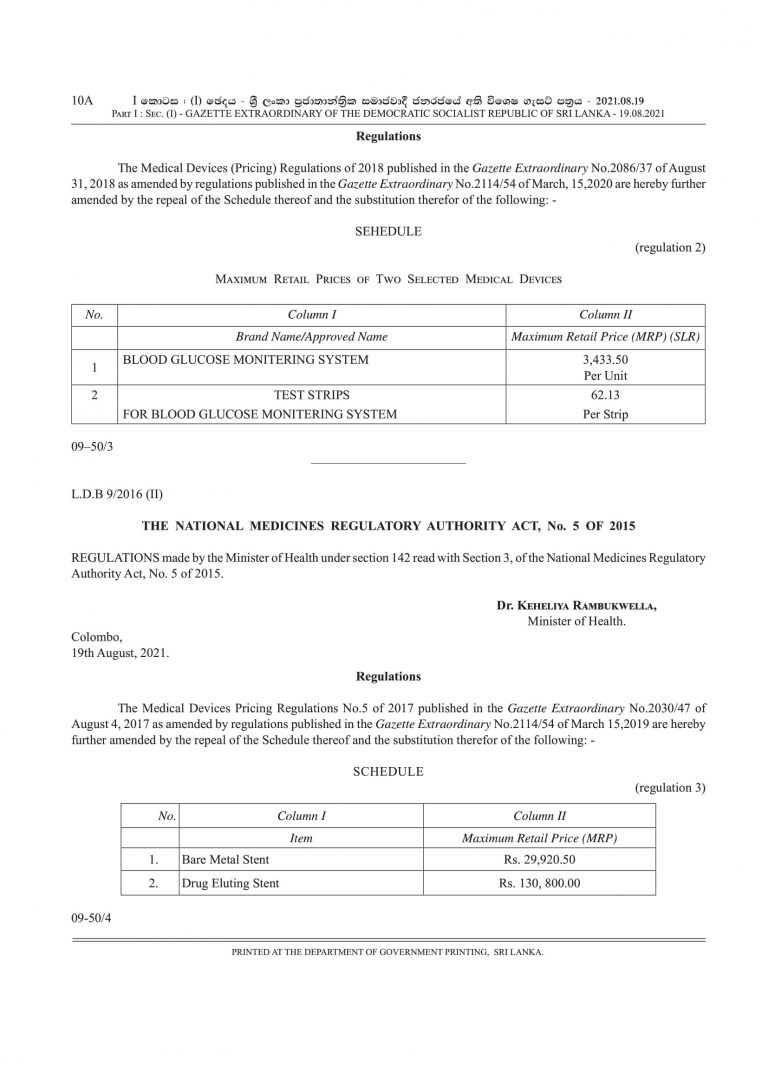
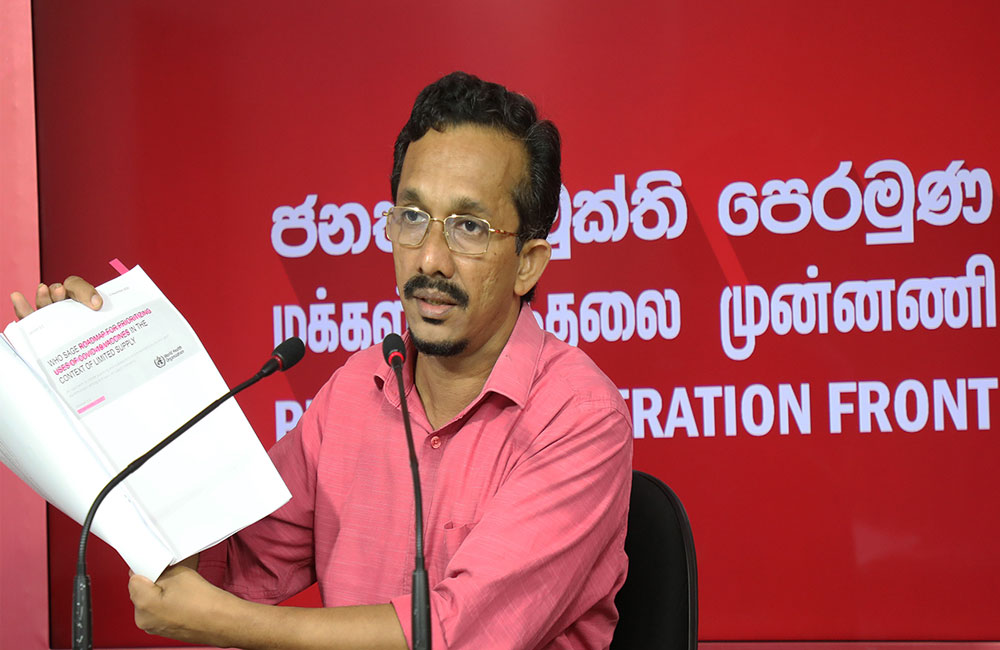
Govt. manipulates data; hides truth from people : Hadunnetti
The Janatha Vimukthi Peramuna (JVP) today alleged that the Government was manipulating data and information on the Covid-19 pandemic violating the people’s right to know the true situation of the pandemic.
Former JVP MP Sunil Hadunnetti told a news conference that it was vital for the people and decision making bodies to know the true data and information on the pandemic situation.
He said it was reported that there was a contradiction in the data and information issued by the Covid Task Force and the Provincial Directors of the Health Services and pointed out that it was a serious matter.
“It was reported that there was a contradiction of the data on Covid patients in the Gampaha District. We doubt the statistics on the Covid mortality was also twisted,” he said.
Hadunnetti said the Covid Task Force was getting data through the Health Ministry and added that it was either the Director General of Health Services or Head of the Covid Task Force was releasing the incorrect information.
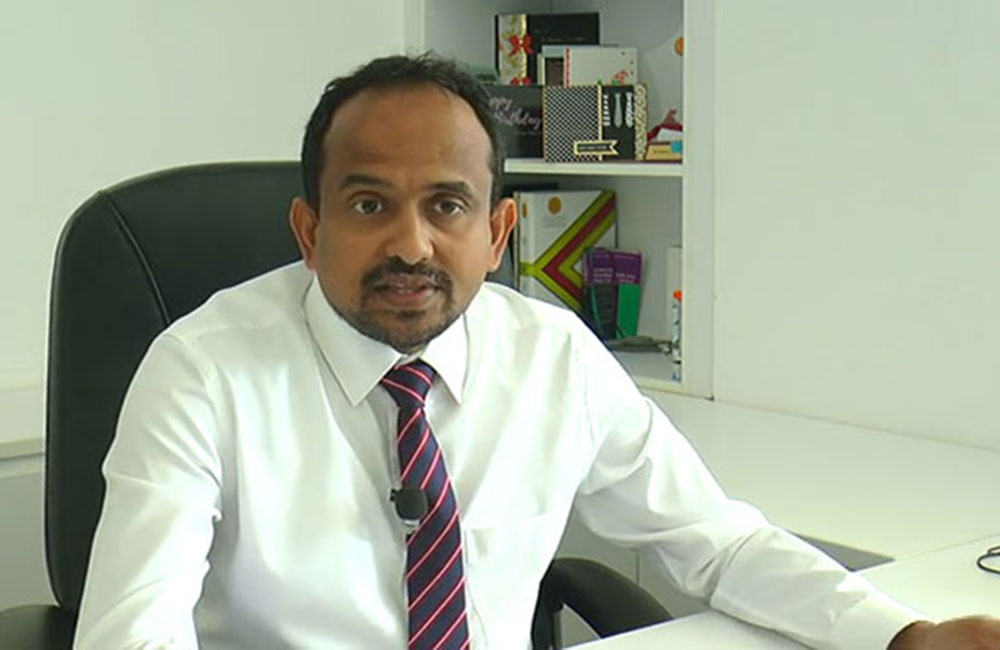
Three mutations found in Delta variant from Colombo for the first time in the world
Three unique mutations appearing in Delta variant together found for the first in the world from Colombo, Dr Chandima Jeewandara said.
Dr Jeewandara who is the Director of the Allergy, Immunology and Cell Biology Unit of Sri Jayewardenepura University said this was identified in the latest genetic sequencing carried on samples obtained from several areas in the country.
“The Indian lineage with three mutations seem to be the dominant in majority of samples in the Colombo district,” he said.
“The three mutations are A22V, A701S and A1078S. One of the mutations, which is A701S has been originated from Sri Lanka while A22V has been described in different parts of the world and A1078S mutation has been detected in Malaysia,” he underlined.
Dr Jeewandara said they were closely monitoring this as it is a significant finding and investigating the importance of this finding to see whether there is an advantage with these three mutations for the survival and transmissibility of the virus.
Meanwhile, he said out of the 88 samples of COVID-19 patients obtained from several districts, 84 cases were of Delta variant.
“The cases of Delta variant were mainly detected in the Colombo district. The other patients were detected from Kandy, Matale, Ratnapura, Nuwara Eliya, Galle, Vavuniya, Maharagama, Malabe and Gampaha,” he added.
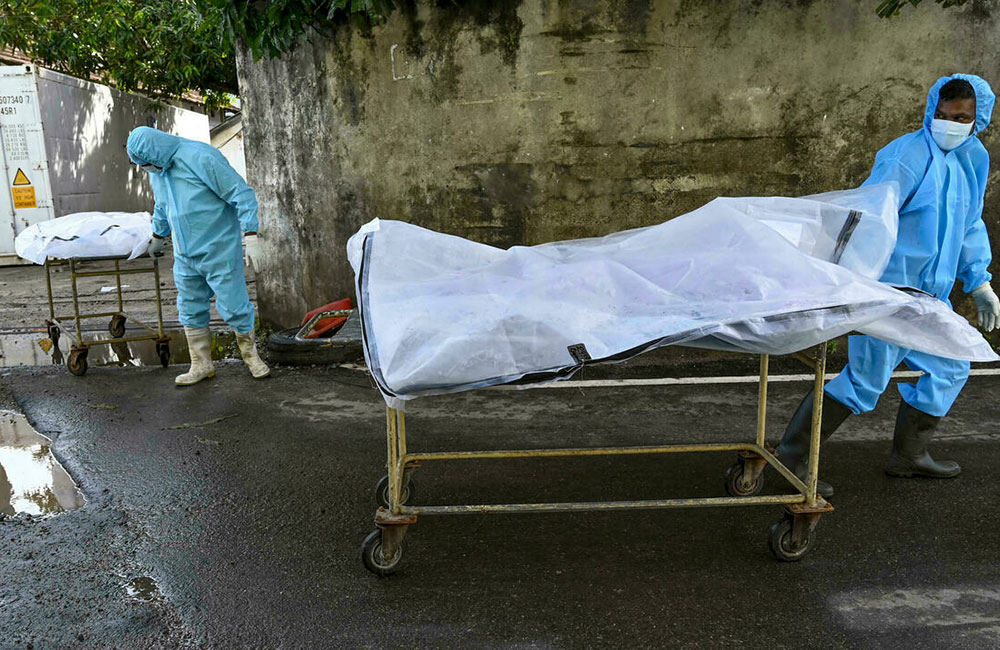
156 COVID-19 Deaths confirmed for Wednesday (11)
A total of 156 more COVID-19 related deaths that occurred yesterday (11) were confirmed by the Director-General of Health Services today pushing the death toll to 5,620.
According to the Government Information Department,69 females and 87 males are among the deceased.
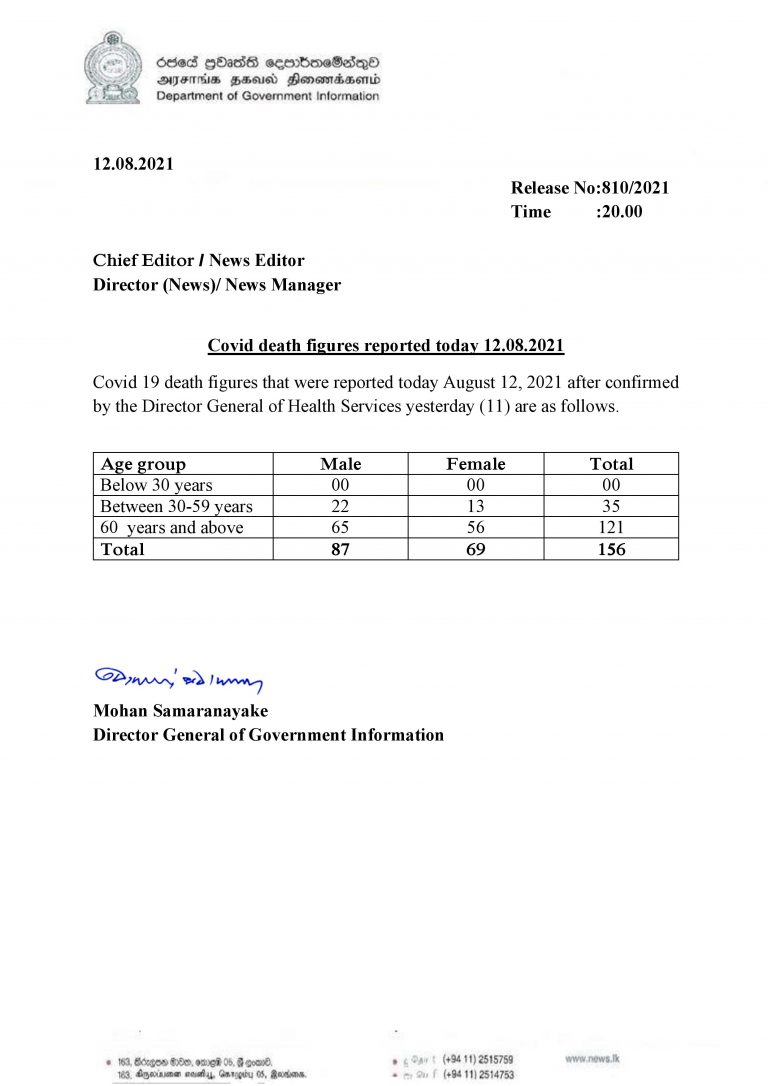
Page 371 of 684